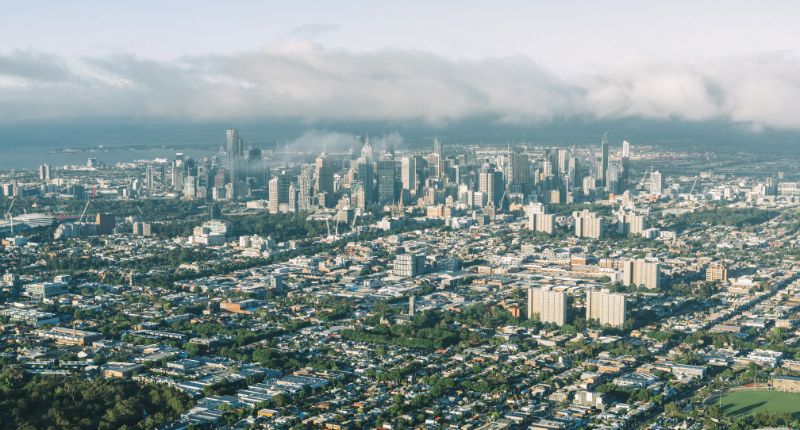- Rentals in Melbourne rose 18.3% to $550 per week across 2023.
- This paled in comparison to the national rise of 11.5%.
- Investors currently want out of the rental market, but an interest rate cut may entice some back, adding supply and potentially easing pressure on rent growth.
Rentals across Melbourne recorded an 18.3% surge in rents last year, according to the latest PropTrack data, burning a sizeable hole through renters’ pockets.
The unit market recorded an annual increase in rents of 15.6% to $520 per week, while houses saw a 14.6% to $550 per week.
Quarterly movement was flat, however, with both houses and units seeing no movement in prices.
Melbourne weekly asking rents
The Melburnian rental market pain exceeded the levels seen more broadly, with the capital city rises in rents coming in at 13.2% for the year, and 11.5% for the nation.
Annually, only Perth’s rental market beat Melbourne to the top for rent rises, at 20%.
Renting in Melbourne remains a extremely challenging, with report author and PropTrack economist, Angus Moore, noting:
“Rents are growing at double-digit rates in many capitals, with Sydney, Melbourne, and especially Perth renters facing very strong growth.”
Rent rises to be more subdued this season
The December to March period typically sees rents rise as new residents come to Melbourne for work, and more as the new year begins, director at Lucas Real Estate, Dylan Emmett, told The Property Tribune.
Gary Peer branch manager, property management division, Anthony Lee, told The Property Tribune that the seasonal demand from students is also adding to the already large number of people actively looking for a rental.
“Now, without COVID implications, this has seen us return to what has traditionally been the time students and people set up their start of the year and is quite busy. This demand is putting upward pressure on rents across many segments of the market,” said Lee.
Emmett noted, however, that while rent rises are expected early in 2024, it will not be to the same volume seen last year due to many locals having already returned to Melbourne and prices are already at a much higher starting point.
“We anticipate more affordable properties to have more demand and therefore more increase, however, we do not anticipate this trend to apply to larger two and three bedroom properties,” said Emmett.
Lee added: “On the back of a very strong level of rental growth in rent across 2023, the pace is not expected to continue, but all factors point to a continuation of upward pressure on rents whilst supply is critically low and will continue to rise.”
Will rents begin to fall soon?
Experts broadly expect to see the pace of growth ease, with Emmett noting that:
“Prices are already quite high, and whilst we are seeing the usual seasonal increase, the demand is not as high as previous so we anticipate the more affordable properties will have minor gains, whilst larger properties will be unchanged.”
He added that slowing rental growth is already being observed in the premium end of the Melbourne rental market, “…and we would anticipate entry level properties to taper off once we get to April and onwards.”
Whether rental declines, as recently seen in Canberra, may also be replicated in Melbourne? Emmett told The Property Tribune:
“I think it is possible Melbourne will see this in the middle of the year, as prices are already high.”
Available rentals rise, but investors are selling up
In a previous vacancy rate report, PropTrack data found vacancy rates marginally rose in November 2023 in Melbourne. While the 0.03 percentage point rise to a 1.16% vacancy rate was good news at face value, PropTrack senior economist, Paul Ryan, observed in that report that a 0.44 percentage point fall had been recorded across last year.
Furthermore, both Lee and Emmett noted the now all too common story of Melburnian investors selling up and exiting the rental market.
“Interest rates have created pressure on rental providers,” said Emmett.
“We have seen many investors sell their properties as the rental rises have not kept pace with interest rate rises.”
Lee noted the regulatory environment was a factor in some investors’ decisions, but should interest rates ease this year, investors may return.
“We saw a number of investors depart the Melbourne rental market in 2023 due to factors of increased costs on compliance, interest rates, new land tax impositions and more regulations cumulatively taking effect, and, unfortunately, those investors departing are currently not being replaced with new investors at the same rate.
“If there is an ease in rates, coupled with improving returns, it may start to encourage new investors back into the market. This will be a good thing to alleviate supply pressure in Melbourne.”








